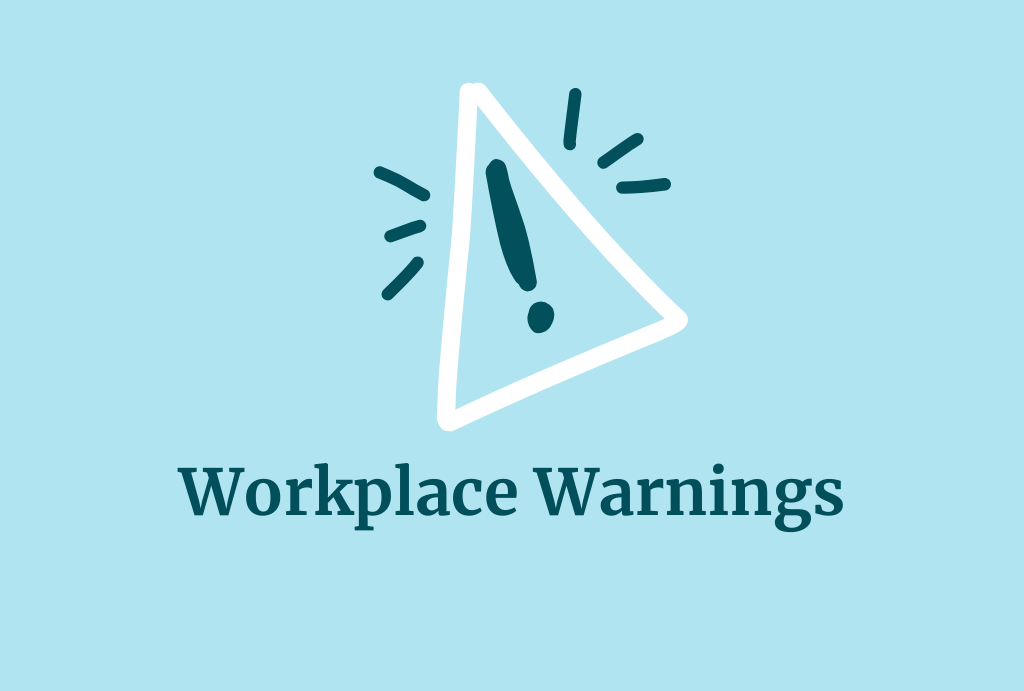In New Zealand employment law, there’s no one-size-fits-all approach to warnings in the workplace, and relying on misconceptions like the “three warnings rule” can lead to costly mistakes. This article explores the purpose of warnings, clears up common misconceptions, and highlights best practices for managing warnings fairly and effectively.
Should warnings always be given instantly?
Some assume warnings are informal reprimands that can be issued on the spot. In reality, if an employer wants to rely on a warning later, it must be part of a fair process. That means presenting the allegations to the employee, giving them the chance to respond and seek advice, and then communicating a reasoned outcome.
Where the legal requirements are not met, previous misconduct will still count as evidence that an employer could use in the future to show an employee knew what was expected of them, but it will hold less weight than if a formal process is undertaken.
Do employees need to be given three written warnings before their employment can be terminated?
There’s no legal requirement in New Zealand for three warnings before dismissal.
In cases of serious misconduct, employment may be terminated after a single fair process.
For repeated but less serious misconduct, one formal warning can be enough to justify dismissal if the behaviour continues. What matters is that the process is fair and the expectations are clear — not how many warnings have been given.
Is simply saying an employee has been formally warned enough?
Warnings need to have specificity for employees to be able to note the pitfalls and changes to make the necessary improvements. It is important to note
- the reason why and when the employee has failed to meet expectations, and;
- the potential future consequences if they fail to improve.
Employers should also give a rationale for why meeting this expectation is important to the business, so that the employee has more contextual understanding.
Do employers need to document informal or verbal warnings?
Although not a requirement, in the interest of best practice, an employer should try to keep a file note of any informal discussions about an employee’s conduct.
The case of Taifau v Spring 2017 Ltd [2023] NZERA 396 shows why this matters.
In this case, Ms Taifau had been working in a bakery and because of her performance, had allegedly received over 20 verbal warnings from her employer. Her employer decided that it had had enough and sought to dismiss her in a formal disciplinary process. It tried to rely on a verbal warning in relation to a customer complaint, as well as the many other verbal warnings it had supposedly given to her, in justifying the proposal to terminate her employment. Ms Taifau vehemently denied the employer raising the customer complaint with her, or any of the alleged 20 verbal warnings before her dismissal.
The Employment Relations Authority held that Ms Taifau was unjustifiably dismissed, as there was no evidence that the employer had raised any of these issues that it tried to rely on in the dismissal letter. Further, even if the warning was issued in relation to the customer complaint, it could not be relied on as there was no formal process undertaken and was therefore, unilaterally imposed on Ms Taifau. Ms Taifau received $19,137.24 in wage arrears, unpaid notice and compensation for her unjustified dismissal.
The takeaway:
Warnings are more than administrative formalities. They are a critical part of fair process. Employers who take the time to document and communicate them properly will be far better placed to manage conduct issues and avoid costly employment disputes.
Want to learn more about warnings and disciplinary processes? Copeland McAllister is running Employment Relations Masterclasses in 2026, in Invercargill, Queenstown, Dunedin, and Timaru. We’ll cover a range of topics, including disciplinary processes. You’ll get interactive learning, led by our expert team.
